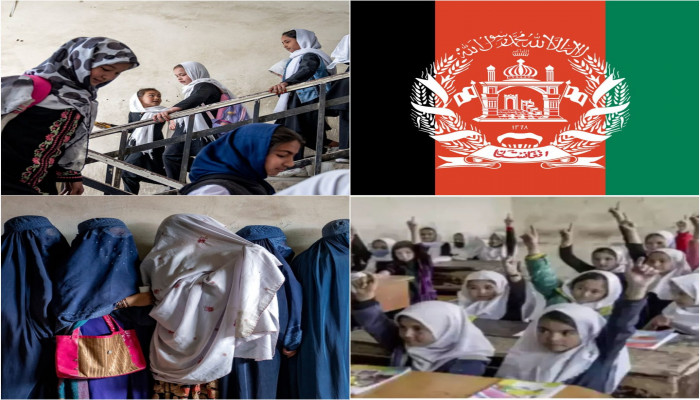Senior Taliban official urges for education access for Afghan women and girls
- In Reports
- 02:49 PM, Jan 20, 2025
- Myind Staff
A high-ranking Taliban official has urged the group's leader to lift the education bans on Afghan women and girls, stating that there is no valid reason for such restrictions. This marks a rare public criticism of the government’s stance on women's education.
Sher Abbas Stanikzai, the political deputy at the Taliban’s Foreign Ministry, made these comments during a speech on Saturday at a religious school event in Khost province, located in southeastern Afghanistan.
He told an audience there was no reason to restrain women and girls from education, “just as there was no justification for it in the past, and there shouldn’t be one at all.”
Currently, the Taliban has imposed a ban on education for girls beyond the sixth grade. In addition, reports surfaced last September suggesting that the authorities had halted medical training and courses for women.
In Afghanistan, only female doctors and health workers are permitted to treat women and girls, though the authorities have yet to confirm the ban on medical training officially.
“We call on the leadership again to open the doors of education,” said Stanikzai in a video of X. “We are committing an injustice against 20 million people out of a population of 40 million, depriving them of all their rights. This is not in Islamic law, but our personal choice or nature.”
Sher Abbas Stanikzai, who previously led the Taliban's negotiation team during talks that resulted in the complete withdrawal of foreign troops from Afghanistan, has long advocated for the education of women and girls.
This is not the first time he has spoken out to support girls' education; he made similar comments in September 2022, a year after girls' schools were shut down and several months before the university ban was enforced.
However, his most recent remarks were significant as they marked his first public appeal for a policy change, directly addressing Taliban leader Hibatullah Akhundzada.
Ibraheem Bahiss, an analyst with the Crisis Group’s South Asia program, pointed out that Stanikzai has consistently highlighted the importance of girls' education, emphasising it as a fundamental right for all Afghan women.
“However, this latest statement seems to go further in the sense that he is publicly calling for a change in policy and questioned the legitimacy of the current approach,” Bahiss expressed.
In Islamabad earlier this month, Nobel Peace Prize winner Malala Yousafzai called on Muslim leaders to confront the Taliban over their policies on education for women and girls. She made the remarks during a conference organised by the Organisation of Islamic Cooperation (OIC) and the Muslim World League.
The United Nations has stated that international recognition of the Taliban is nearly impossible as long as bans on female education and employment persist and women are not allowed to move freely without a male guardian.
While no country officially recognises the Taliban as Afghanistan's legitimate ruler, nations like Russia have been strengthening their ties with them. India has also been cultivating relationships with the Afghan authorities.
In Dubai, a recent meeting between India's top diplomat, Vikram Misri and Afghanistan's Foreign Minister, Amir Khan Muttaqi highlighted their growing cooperation.







Comments